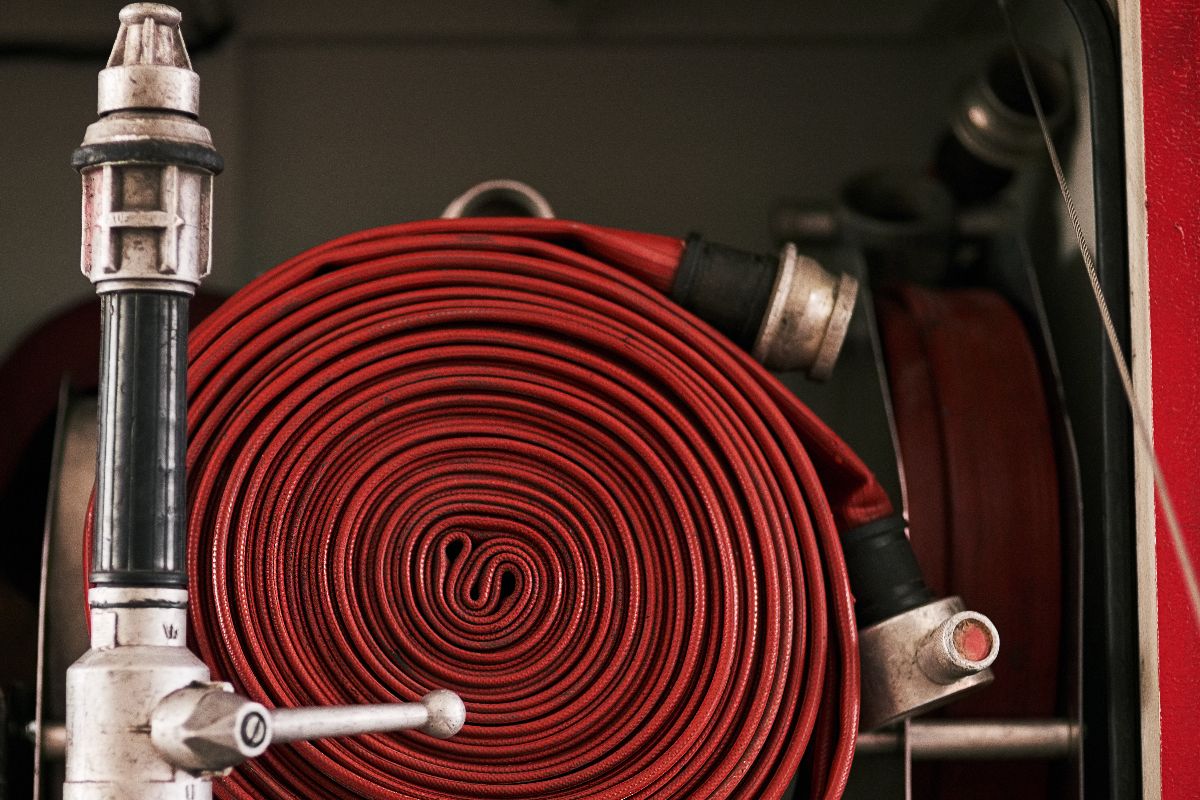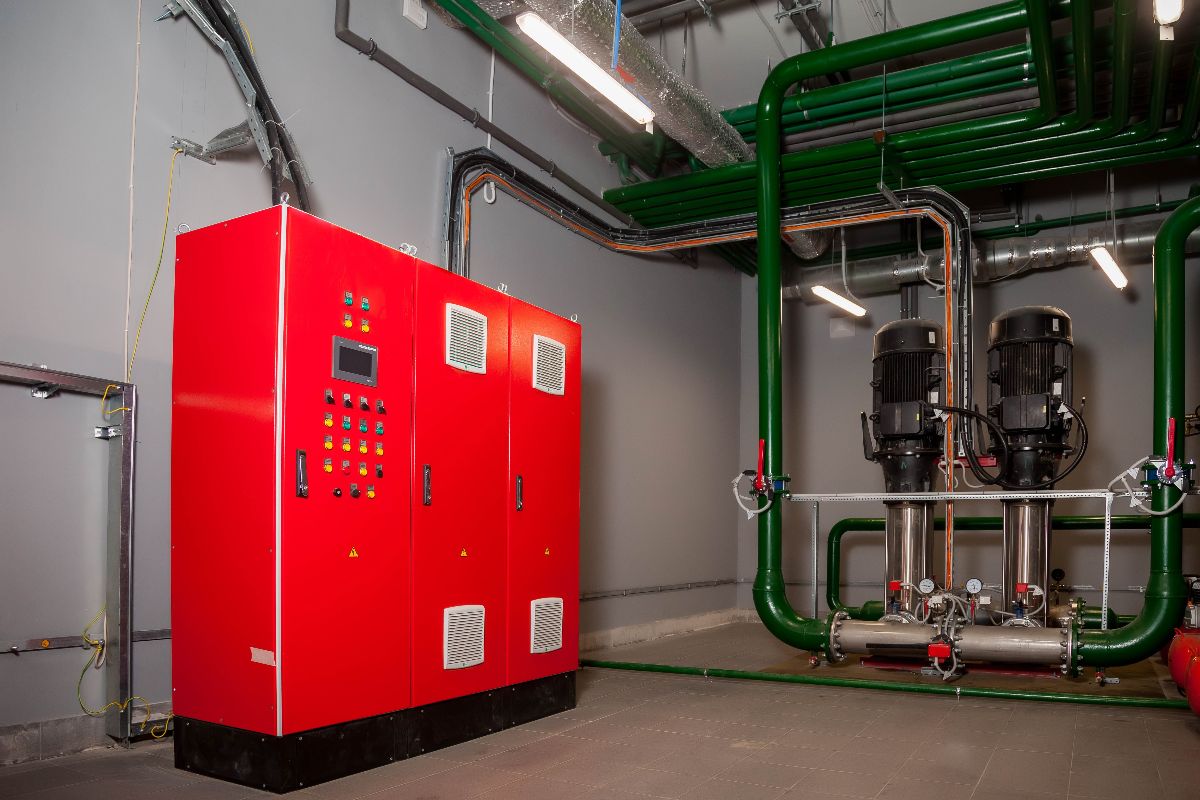Importance of Regular Fire Alarm Testing and Maintenance
 April 16, 2024
April 16, 2024

What is the importance of regular fire alarm testing and maintenance?
- Ensures functionality
- Identifies faults and weaknesses
- Minimizes false alarms
- Extends system lifespan
- Compliance with regulations
Overview
- Discover the critical role of regular fire alarm testing and maintenance in ensuring the functionality, reliability, and lifespan of your fire alarm system. Explore how proactive maintenance helps identify faults and weaknesses within the system, preventing potential failures during emergencies.
- Understand how scheduled maintenance activities extend the system’s longevity by addressing wear and tear, optimizing performance, and ensuring compliance with safety regulations enforced by the Bureau of Fire Protection in the Philippines.
- Safeguard lives and property by prioritizing the upkeep of your fire alarm system through regular testing and maintenance practices.
Fire is a constant threat. A properly functioning fire alarm system is your first line of defense. However, like any other safety equipment, it can develop faults or weaknesses over time if not properly taken care of.
This article explores the importance of regular fire alarm testing and maintenance, ensuring your system is always ready to protect you and the people around you.
Ensures Functionality
A fire alarm system’s effectiveness hinges on its ability to detect smoke, heat, or other fire indicators promptly. However, without regular testing and maintenance, it can become unreliable. This can potentially lead to delayed or failed responses during critical emergencies.
Testing and maintaining them regularly ensures its components, such as sensors, control panels, and communication devices function optimally. This proactive approach identifies any deficiencies within the system, allowing for prompt repairs or replacements.
This ensures your system operates flawlessly when it matters most during a real emergency.
Identifies Faults and Weaknesses

It can become vulnerable over time due to dust buildup, corrosion, or loose wiring within vital components like smoke detectors, heat sensors, and control panels. These issues might go unnoticed until an actual fire erupts, leading to disastrous outcomes.
The system might not transmit a signal to the monitoring station during a test, even though the alarm sounds locally. This exposes a communication issue that technicians can address, ensuring a swift response when it truly matters.
Fire alarm technology constantly evolves, and proactive maintenance ensures your system meets current safety standards. Technicians can assess the system’s overall effectiveness and identify if outdated components need upgrading.
Minimizes False Alarms
Fire alarm systems have adjustable sensitivity levels to detect smoke or heat. Through regular testing and maintenance, technicians can calibrate these settings to the appropriate levels for the environment.
For instance, a commercial kitchen in a restaurant, where a fire alarm system is installed, has a constant presence of smoke, steam, and heat generated from cooking activities. If the system’s sensitivity levels are not properly calibrated, it may trigger frequent false alarms, disrupting operations and causing unnecessary evacuations.
Proper adjustment ensures the system responds accurately to genuine threats while minimizing false alarms caused by environmental factors.
Extends System Lifespan

Scheduled maintenance activities, such as cleaning, inspections, and component replacements, help prevent malfunctions and breakdowns. Proactively addressing wear and tear, dust accumulation, or environmental factors that could compromise the system’s operation through these routines minimizes unexpected failures.
This preventative approach not only enhances the system’s reliability but also prolongs its lifespan by ensuring all components function optimally. Investing in regular maintenance enables property and business owners to extend the lifespan of their fire alarm systems. This maximizes their effectiveness in protecting lives and property.
Compliance with Regulations
The Philippines prioritizes fire safety through regulations enforced by the Bureau of Fire Protection (BFP). Building owners and operators have a legal responsibility to comply with these regulations, which are designed to minimize damage and ensure occupant safety in the event of a fire.
Adhering to these regulations is a legal requirement that helps protect lives and property. By regularly testing and maintaining fire alarm systems, they demonstrate their commitment to meeting safety standards and fulfilling their duty of care to occupants and visitors.
Failure to comply with regulations can result in hefty fines, legal liabilities, and even closure of facilities in severe cases.
Key Takeaway
The importance of regular fire alarm testing and maintenance are not just about ensuring your fire alarm system functions; they’re an investment in the safety of your building and its occupants.
By proactively identifying and addressing faults through these routines, you minimize the risk of false alarms, extend the lifespan of the system, and ultimately, guarantee it operates flawlessly when it matters most.
Industrial PH, your trusted partner in fire alarm systems in the Philippines, prioritizes your building’s resilience. We equip you with top-tier fire detection, protection, and suppression systems, minimizing damage and keeping occupants safe. Ensure peace of mind, reach out to us today for a free quote, and protect what matters most.



